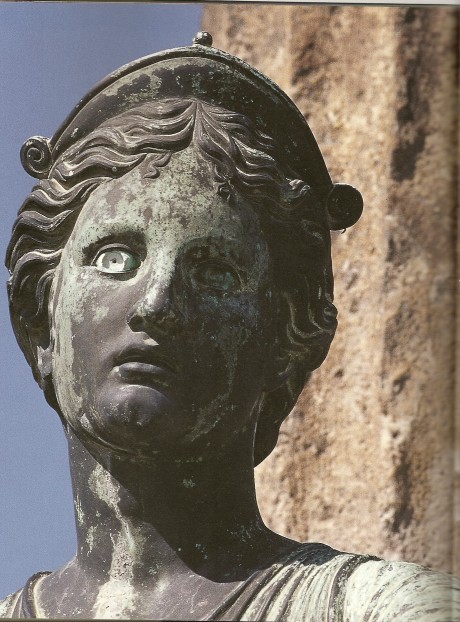
Ferrante Ferranti, photography.
“Today, Americans would be outraged if UN troops entered Los Angeles to restore order; tomorrow, they will be grateful. This is especially true if they were told there was an outside threat from beyond, whether real or promulgated, that threatened our very existence. It is then that all people of the world will plead with world leaders to deliver them from this evil….individual rights will be willingly relinquished for the guarantee of their well-being granted to them by their world government.”
Henry Kissinger, 1992
“Long live Christ the King.”
Reverend H.E.B. Nye
Church of England, 1933
“Communists are the vultures who scent the corpse of humanity from afar.”
Reverend H.E.B. Nye
Church of England, 1938
“I think we ought to only read the kind of books that wound and stab us.”
Kafka
Two stories struck me this week. First, photos of a youthful queen practicing a Nazi salute. The Royals are closely acquainted with Hitler and fascism. The front page tabloid-like stories appeared in almost all UK newspapers. However, this is a news story that was, in reality, carefully stage-managed, as it were. It has been a controlled leak. Firstly, you have to have lived in a cave, or be functionally illiterate, to not know the British Royal family are fascists. Honestly, this can’t really be a surprise. But I want to focus more on how media works in terms of propaganda, and stories such as this. The always perceptive and prescient Phil Greaves pointed out immediately that this story felt more like phase one of a ‘rehabilitating fascism’ project than it did a criticism of the royals. It was just youthful exuberance, same as many young people did in that era. Or just kids joking about that silly Mister Hitler. It makes no difference, really. And in fact it is likely it was a bit of fun for the girls. The message remains the same. Fascism appealed to certain people, young and old, and for certain reasons. And by the time that photo was taken, that graced the front page of the Guardian, 1933 purportedly; everyone in Europe was aware Hitler was a fascist and authoritarian, and race purist, a supporter of eugenics and Aryan purity. But the language of the UK papers tended toward words like ‘youthful’ and ‘dabbling’. There was a lighthearted tone applied to the *fascist* part of the story, but deep moral outrage in the language used to criticize those who doubted the Queen.
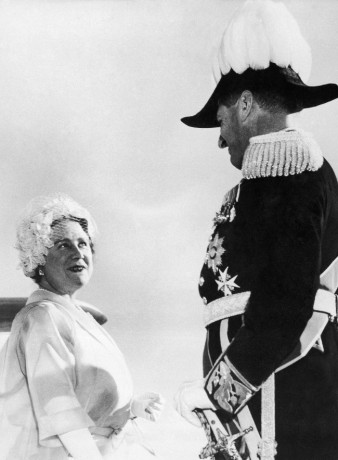
Queen Elizabeth and Lord Dalhousie, on her visit to Rhodesia, 1960.
To understand the mechanisms of how this story gets *read* goes a long way in understanding how media works in the post modern epoch. Why Zizek is taken seriously, for example. Or why people pretend to take him seriously. Because it’s not really in the end about what he says. Or if any particular person believes what he says or writes. It’s about a cultural currency that has been put in circulation. One can point out until blue in the face that *what* he says is racist, for example. But that’s less relevant than the position he occupies in the intellectual marketplace — the manner in which the Zizek brand takes up intellectual shelf space, much like Pepsi and Coke do in major super-markets. Zizek’s rhetoric is intentionally obfuscated. Most of the time it can mean anything, really. There is just enough there, though, to deliver a message. There are other brands, of course. It’s probably more telling in the case of Zizek because he occupies a niche market, in a sense, but one that involves or is implicated in oppositional voices. Thomas Piketty is another brand, just now. But his resonance is more with liberals, with an audience that, in general, has a softer oppositional posture, a reformist position. My point here isn’t with defining these positions so much as with trying to unpack the manner of circulation and what it means. How these figures work as forces in the neutralizing or domesticating of radical criticism. How there is a hidden (or semi hidden) narrative attached to everything. The Royal family are treated as a grand institution. One of nobility and sacrifice. Never mind the queen mum has a billion dollar overdraft to draw on and has spent her life favoring fascists and other Euro royalty (much the same thing, I realize). Grandson Harry and his Nazi attire at a costume party is then given a narrative out of 50s Amnerican TV. The Queen scolding him, etc etc etc. As if. The narrative is one of distraction — nobody is expected to really dig into the actual history of these vile people. No, the cartoon tabloid soap opera storyline is anticipated and received. Like Princess Di, the people’s princess. Who, when she died, was dating the son of the world’s leading death merchant.
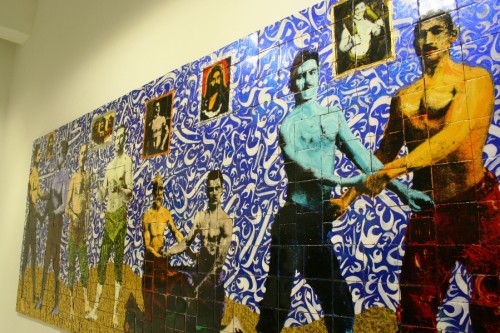
Khosrow Hassanzadeh
I will return to this, but I want to mention the second story, and that was how international wealth was descending on Greece like carrion birds to pick clean the bones of a suffering country. Johnny Depp is planning to buy himself an island. A Greek island. Now, I cannot actually verify if this is true, but I suspect it is. And if so, Depp now belongs to that same class of fascist the Queen Mum tended to invite for tea. I seem to recall Pinochet was rather a favorite. Queen Frederica in Greece, back in the day, was a consort of various Nazis, and then later found the US equivalent in Allan Dulles, with whom she carried on an extended affair. Talk about taste. But, the point is that why would you do this, buy an island, if you had tens of millions? Why? Any sane empathic human would give, would share their millions. Not buy land and hoard it. I don’t think Depp or any other of these vultures intends to open free Universities or health care centers. No, they will buy elite private playgrounds (apparently Warren Buffet is buying one, too). It must be clear that such behavior is a main ingredient for fascist ideology. Buffet’s purchase is covered in mainstream media as a savy business decision. He’s just taking advantage of the market.
But Depp would be standing alongside, or partying with, in a historically equivalent way of speaking; Franco, Oswald Mosely, Prince Christoph von Hessen, Ante Pavelic, and members of Opus Dei. The Catholic Church is of course close to fascism. Again, this should be apparent. Eating off gold plates at the Vatican, with those floppy gem encrusted rings, is not a great distance from your own Greek island, and romps with the inbred offspring of a Grimaldi, or a relative of those hedge fund royals in Liechtenstein.

Prince Bernhard and Mobutu Sese Seko, 1973.
Peter Phillips wrote recently, on the topic of Bohemian Grove, which began again this July 18th:
“Private men’s clubs, like the San Francisco Bohemian Club, have historically represented institutionalized race, gender and class inequality. English gentlemen’s clubs emerged during Great Britain’s empire building period as an exclusive place free of troublesome women, under-classes, and non-whites. Copied in the United States, elite private men’s clubs served the same self-celebration purposes as their English counterparts.”

Laurenz Berges, photography.
Bohemian Grove began in the 1860s, but didn’t take on its current incarnation until into the 20th century. This is where the 1% go. This is where Kissinger shares pussy jokes with Jeb Bush, or Gordon Brown. But really this is a sort of low rent frat house version of the Bildeberg Group (which is nominally more European). An informal corporate backslapping boys club. Reps from General Electric, Bank of America, Dow and General Motors, various presidents of airlines, governors and judges, a few Hollywood movers (Norman Lear went this year) and some White House lawyers. As G. William Domhoff writes: “First, the very fact that rich men from all over the country gather in such close circumstances as the Bohemian Grove is evidence for the existence of a socially cohesive upper class.”
But I want to examine more how increasingly, today, the master narrative is consciously being shaped by the ownership class. This is, really, what the Bilderberg Meeting is all about. It is worth noting that among the attendees to this years meeting, besides the usual Bank Presidents, the head of the Danish secret service, and various CEOs of major corporations, members of parliaments from several EU countries, and fellows from Carnegie Endowment for International Peace, and the Hoover Institute, was the head of LinkedIn, and the head of Google engineering. And of course the chairman of Goldman Sachs and the secretary general of NATO. Oh, and Princess Beatrix of the Netherlands. Which nicely segues back to the youthful Queen Elizabeth and that Nazi salute. If one were to google Queen Elizabeth, among the first things you would read is how she fought for an end to apartheid. This is pure PR, it is exactly the sort of thing Johnny Depp’s press agent will do if there is bad press about that Greek Island (as he did with the fallout from The Lone Ranger). These are invented biographies. The old Queen adored Ian Smith, and Botha, and it really does stretch credulity to imagine her as a champion for African independence. Such history, though, has mostly been scrubbed clean. Today the creation of narrative resides less in what is actually said (the content, as it were) and more in the capturing of attention. The control of shelf space, to over use that metaphor.
And a final note on The Bilderberg Group. It was founded by Prince Bernhard of The Netherlands in 1954, which warrants mention if only because Bernhard was an enthusiastic friend of the Nazi Party in his youth. But the tentacles reach everywhere, and in the 1990s, the chairman of Bilderberg was Lord Carrington, the man appointed later by the UN as its first representative to bring peace following NATO’s assault on the former Yugoslavia.

Ante Pavelic, Croation fascist. Circa WW2.
The title of a recent article at The Daily Beast was “Fascsim is Fashionable Again”. This is interesting, because the article did not say, ‘Fascism is Frighteningly on the Rise Again’. These details are not accidents. They are part of a media campaign by corporate owned outlets and their subsidiaries. The article just mentioned goes on to dutifully say ‘oh fascism is bad’, and intolerant. But, the real message of the article is FASHION, and the secondary title is “Weimer Moment”. The nostalgia for Empire, for colonialism, and now for fascism is to be found not just in revisionist histories, but in the style codes being layered over all this. The Queen’s nazi salute has a retro look to it, in the photo. Very little is explained to an increasingly sub literate audience, about what fascism really means, what it does, and has done. The Daily Beast/ article also manages to somehow blame all this intolerance on Dieudonne M’Bala M’Bala. Of course, all this white ultra nationalism is the fault of an French speaking Camaroonian. Of course.

Dan McCleary
Looking back, 1962 looms as a significant watershed for fascist revanchism. The year of the second council of the Vatican, and in which Father Lefebvre broke away (and this in turn became linked with the National Front in France). Now this break away movement, from the newly liberal Vatican, blamed Marxists, Jews, and other non-European influences for the fall from the purity of that long Indo European history of feudal values. This was also the year France de-colonized for good. In Eastern Europe this year marked the rise, in Poland, of the NOP and deeply reactionary forces within the Church which were openly racist (especially toward Roma — and here is fascinating to remember Zizek’s anti Roma rant, which was partly a dog whistle for those in Eastern Europe with a fondness for hard core clerical fascists) and in other Eastern countries, Croatia especially, similar feelings were growing. The Polish Opus Dei cadre was what catapulted Cardinal Wojtyła into power and eventually the reclaiming of the Vatican for fascism, and for an anti communist US government. The shaping of the Pope John 2 story was largely facilitated if not outright written by the U.S. State Department. There was, besides the descendants of Croation Ustache, the Hlinka Guard in Slovakia, and the Legion of the Archangel Michael in Romania. John Pollard calls them “clerical nationalists”, a sub genre of mainstream pan Euro fascism.
The fascism that was undergoing reformulation in the early sixties was one that saw Nazism as the last bulwark against godless Bolshevism. And it was always linked to European royal houses. Remember that this was the year Maurice Bardeche published What is Fascism?. Bardeche was the brother in law of Vichy fascist Robert Brasillach (executed for treason in 1945). Bardeche was the link to those neo-Vichy circles that went underground, and who sympathized with the clerical fascists and nationalists in Eastern Europe. Bardeche sought a rebranding of fascism. His ideal was National Socialism in Germany, and felt Italian fascists had strayed too far from their roots (meaning, one assumes DeAnnunzio, though it’s never very clear, but he did admire the NSI). But this was a pan-Euro brand of fascism, and one that looked to modernize along the lines of racial and cultural purity. It was also pro-colonialist, though this was not emphasized. Jean Marie le Pen is the ideological descendant of Bardeche.
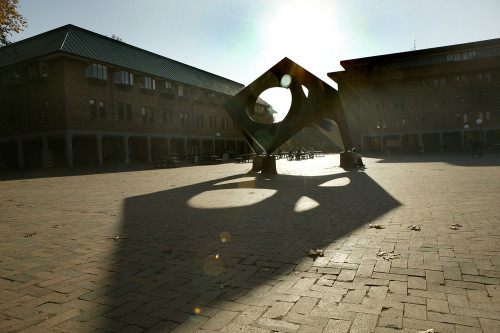
Isamu Noguchi
The psychology of the contemporary fascist resurrgence is actually related to a post industrial society. Cyber fascism. Retro-style fascism. It is post modern. The liturgical trappings of Spanish, Italian, and Croation fascists, were just too redolent of defeat, of surrender to Bolshevism, and to American neo-liberal hedonism/puritanism. The new Fascist style is assisted by the corporate stenographers at places like VICE and VOX and Buzzfeed. ‘Social news and Entertainment’ as Buzzfeed describes itself. Remember, however, how strong the ties between Ante Pavelic and Croation fascism, and the Catholic Church. John Cromwell writes:
“(It was) an act of ‘ethnic cleansing’ before that hideous term came into vogue, it was an attempt to create a ‘pure’ Catholic Croatia by enforced conversions, deportations, and mass exterminations. So dreadful were the acts of torture and murder that even hardened German troops registered their horror. Even by comparison with the recent bloodshed in Yugoslavia at the time of writing, Pavelic’s onslaught against the Orthodox Serbs remains one of the most appalling civilian massacres known to history.”
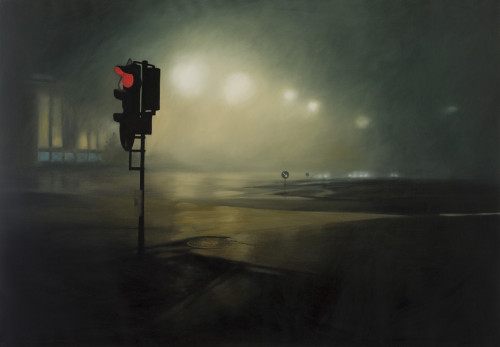
Roman Tolici
Cardinal Stepanovic, close with Pope Pius, worked with Pavelic in the exterminations. Nathan Wold writes :
“Concentration camps were set up across the country, including one of the largest camps in Europe at Jasenovac, where as many as 800,000 Serbs, Jews, Gypsies, and political dissidents were killed. Croatian Catholic clergymen served as guards and even executioners in the camps. At Jasenovac camp, a former student priest named Petar Vrzica won a contest by slitting 1,350 throats in a single night. The slaughter wasn’t contained in the camps either. The Ustashe would descend on villages with hatchets and knives. One attack in 1942 was led by a priest and may have killed as many as 2,300 Serbs. A survivor of the attack described how the Utashe beheaded young children then threw the decapitated heads at their horrified mothers, cut open the stomachs of pregnant woman, and raped young girls as their horrified families watched. As all of this went on, Pavelic continued to exchange “cordial telegrams” with Pius XXI. The Catholic press in Croatia published propaganda for the fascist regime. The Vatican never once spoke out against the massacres.After the war ended and Yugoslavia was liberated by communist partisans, Archbishop Stephinac was convicted of war crimes and sent to Lepoglava prison. However, the new Yugoslavian state later released him after pressure from the Vatican. Stephinac was later appointed a cardinal by Pius XII. In 1998, he was beatified by Pope John Paul II.”
Much Croation Nazi gold made its way to the Vatican, too. And the Vatican bookeepers are close with the Royal Houses of Europe — especially in Luxembourg and Liechtenstein, and Monaco as well, and of course Holland. The Netherland’s royal houses have always been among the most odious and gratuitously fascistic, and closely linked to the Nazis. Princess Beatrix, daughter of Queen Juliana and Prince Bernhard, married Claus George Willem Otto Frederik Geert van Amsberg (later Prince Claus of the Netherlands). Claus had been an avid Hitler Youth member as a young man, and had joined Deutsches Jungvolk. But, such is the weird adoration of Royalty in our times, one that is increasing it seems, that such things are just shrugged off, those Amsbergs were such scamps as boys.
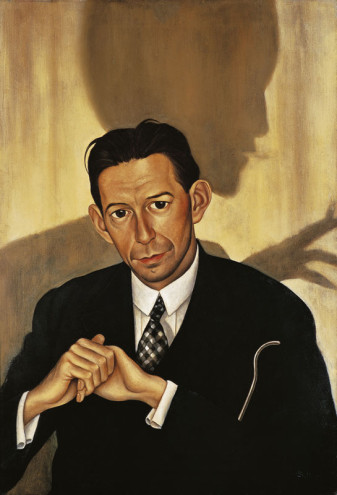
Christian Schad
But…back to narratives, and in this case, master narratives. And to psychology, and to marketing and finally to aesthetics. In the U.S., the narrative is one quite different than in Europe. But narratives, I think, are either what I will call narratives of descent, or narratives of paralysis. Mass culture, corporate owned, directed in a sense by those at the Bilderberg Group meeting, or Bohemiam Grove, or at the Tri-Lateral Commission, or Council on Foreign Relations create narratives of paralysis. This is also, mostly today, the kind of narratives one sees from Hollywood.
Helene Cixous says, to begin writing, we must have death. And here, before going further, it is to be observed that this is where Freud intersects with ideas of narrative. Freud looked at the symptoms of madness, at dreams, and at what he called the psychopathology of everyday life (day dreams, slips of the tongue, errors). This signaled the presence of an unconscious. Repression is what Freud called the mental function of keeping unconscious thoughts out of our conscious life. Cixous wonderful short book Three Steps on The Ladder of Writing is of great assistance in trying to grasp the various layers of narrative that exist today, and more, how to discriminate between them. Cixous says all writing (really, meaning authentic narrative… and more on what I mean below) begins with a picture. She cites Thomas Bernhard, and a scene at a butcher shop. For the scene ends with “Nothing but corpses”. All stories are crime stories. All contain or relate to a primal crime. All begin with death, they don’t end with death. In fact they don’t really end, as dreams don’t really end.

Constantin Brancusi. Drawing.
“Writing, in its noblest function, is the attempt to unerase, to unearth, to find the primitive picture again, ours, the one that frightens us. Strangely, it concerns a scene. The picture is not there without a reason. Those who have been in contact with this opening door perceived it in the theatrical form of a scene. Why a scene? Why is it a scene? Why will it become the scene of the crime?”
Helene Cixous
Now, it is not difficult, however much one accepts Freud and Lacan, to see the way mass culture today takes the ingredients of our natural psychic conflicts and tensions and re-purposes them to serve as agents of paralysis. All artworks are fundamentally dreams.
Property is murder. I am refiguring something Cixous says, when she suggests writing (narrative) is a learning to die. Cixous writes…“In life, as soon as I say *my* son, *my* daughter, *my* brother, I am verging on a form of murder.” Here it is important to know that language is narrative. And then, to see how exile, homelessness, and transgression all involve loss. And loss is that upon which desire is predicated, upon which desire is constructed. Our primal narcissism is related to suspicion. And this is why humans create narratives. To make sense of the anxiety. Today, our narratives are stolen by mass culture, by the ruling class, really. Stolen and sold back to us after being castrated. That castration, or denuding, is the act of un-staging. Now, the first property is really the ego.
Kafka, who is quoted by Cixous, suggests books, reading, is akin to banishment into forests far from everyone. That it is like a suicide.
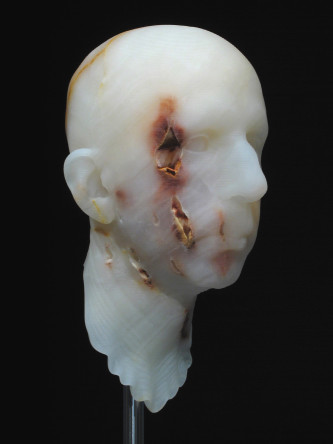
Barry X. Ball
If the stories we consume are only like candy bars, like snacks, then what does that society become? The society into which one is born is going to greatly shape the kind of person one becomes. If a culture applauds a Johnny Depp, a man with so little grasp or cultural education, or sensitivity, that he saw nothing at all problematic about his role in The Lone Ranger, then that culture is processing narrative as if it were a candy bar. Something both hated, and desired. A compulsion. A kind of food pornography. (That Forrest Gump line, which was recycled endlessly, is another sort of semi conscious validation for kitsch toxicity)
The fascist ideology is one in which the priest, the overlord, the plantation owner, the cop, is the narrator. There are no dreams. There is only domination. The ‘other’ is there to be enslaved. The fascist cannot risk compassion, or empathy. That is the primary distinguishing quality; that must be repressed. Powerfully repressed. That danger, however, never leaves. The fascist is always in a panic. The veneer of complacency hides the bulging eyes of fear. But it is a special fear, a fear of devouring oneself. Norman O. Brown wrote that sexual instinct repeatedly searches for a form of union with objects in the world. In other words, something beyond the pleasure principle. How this relates to mimesis is an intriguing question. For Freud, the child seeks either identification (being like another object) or object choice (possessing the object). In authoritarian socities (fascism) it may well be that identification is discouraged and object choice is encouraged. Now, classical Freudian thinking associates identification with the child’s desire to be like the father, and object choice is the desire to possess the mother. Now, as the traditional family (which in theory was shaped along these lines) erodes in structure, and the patriarchal authority is replaced by, I suspect, technology of some sort, the inclination will be for an imbalance toward object choice. The super ego becomes more ruthless, and more dominating. But the narrative, then, is affected, and if in this historic process of degrading language and story the child comes to reintegrate narcissism as an objectification of self, the child wants to possess itself — which is still a pretty traditional Freudian idea. Only today this narcissistic object choice becomes pathologized and a source of anxiety. Here is where property becomes involved in mimesis. As Lacan wrote: “In fact, in the economy of the psychoanalytic doctrine, narcissim is presented as a terra incognita, whose borders could be mapped by investigative means born from the study of neuroses, but whose interior remained mythical and unknown.” The problem is that identification has to occur before ego formation. Hence, what is the p.o.v.? The problem is that all of this is couched in a certain spatial model, and set of images, when in fact what is going on is operative at an emotional level. The later Freud emphasized that object choice, the love of the mother was more the desire to be loved by the mother. The real conclusion here is that the child inclines toward a merging with the objects of the world around him/her. And into all this runs the reality of loss. The lost object of desire.

Il Lee.
Mass culture today substitutes image for depth, and the infantilizing of contemporary culture contributes to a heightening of aggression, anxiety, and paranoia. Luther said “To love is the same as to hate oneself.” This was one of O. Brown’s points; that a less repressed society would not need to appropriate, in compensation for an experience of insufficiency. The creating of narrative is part of how human society navigates maturation. But with the atrophying of even the basic material of narrative construction, the individual is left with only the frustration of failed identification and failed object choice (which became increasingly interchangeable in the later Freud). The contemporary libido is overdrawn at the bank of love.
The missing component in contemporary artwork, and for the purposes of this post, lets say narrative, is death.
“Oedipus comes to Colonus, then, not just to die there but to bestow upon the city the gift of his death.”
Samuel Weber
In Sophocles, it is the place of death that must be kept secret. The particular place of Oedipus’ death must be kept secret, unseen, invisible. This is exactly the role that staging plays in our psyche, and the purpose of narrative. For here, as Weber so astutely points out, Oedipus’ role involves not an object *out there*, but rather his position in society, and the nature of his own role in the creation of a myth. The mystery of his role. Overdetermined, and yet opaque. There is no beginning nor is there an end. For the secret place of his death, by being secret, involves a transmission — a transmission of memory, and of loss. Oedipus and his relationship to exile, to loss, to absence. And it can only be worked out in the staging.

Queen Frederica of the Hellenes. 1947
Oedipus even says, in conversation with Ismene; “When I am naught, in that hour, then I am a man?” Oedipus is the exile, a role he has played since birth. These narrative themes are the reflections of our own psychic formation. As Weber says, theatre is always a place of death. No single play can contain the medium. And the plays that are performed over and over are those which allow the audience to re-experience their own relationship to mortality. Now, today, it is rare to find work in film and TV that even begin to raise such issues. Films such as Stranger by the Lake, or Mister John, are marginalized because the audience feels a subtle panic in not being coddled, and instructed. Both are films that are close to impossible to find and view. For the narrative of mass culture is one of fixed meaning, of message, of instruction and command. The individual then is left with entertainment. And entertainment is about re-assurance. Contemporary comedy is now acutely painful to experience, for it reminds the audience of its own lack of importance. Helene Cixous writes that Kafka is telling us, in a complex way, something about our inability to desire what we desire — the secret.

David Armstrong, photography.
“We are not capable of becoming citizens of the other side: we prefer to die on this side rather than the other; which is what happens to Moses, as he comically says. Once on the mountain Moses had only one idea; to come running back down among the humans, even to the extent of sacrificing his life for them — the very life he did not dare lose up there.”
Helene Cixous
Narrative must ask us to look at what must not be looked at. But we cannot remember what that is. Would we recognize it if we saw it? This is why mimesis is so profound an idea. Why without it, the process of maturation, of individuation, cannot even begin. It is a society of stillborn.
Robert Walser, the great Swiss prose writer, was an obsessive walker. He walked often at night and his prose is a pure distillation of the psyche that cannot know the world that surrounds it.
“My prose pieces are, to my mind, nothing more nor less than parts of a long, plotless, realistic story. For me, the sketches I produce now and then are shortish or longish chapters of a novel. The novel I am constantly writing is always the same one, and it might be described as a variously sliced-up or torn-apart book of myself.”
Robert Walser
Like Oedipus, the secret cannot be divulged, for it is not that kind of secret.

Qiu Shihua
“Every walk is a kind of crusade.”
Henry David Thoreau
Walser was an exile, too. He owned nothing, he sustained no lasting relationships. He knew no home, a concept that for him carried no meaning.
“Without walking and the contemplation of nature which is connected with it, without this equally delicious and admonishing search, I deem myself lost, and I am lost.”
Robert Walser
Cixous notes that Osip Mandelstam wondered how many shoes Dante wore out in order to write The Divine Comedy. The authoritarian personality, today, the new fashionable fascist follower, is supported by a public that react as do trained seals. The empty applause for the most sadistic humor, the cruel titillations of the endless depiction of violence, and carnage. Applause. Acceptance.
Sebald, writing on Walser, noted the sense of fear in much of his work, the fear of an impending darkness. And this is everyone’s fear of the night. That it will not end, that it will intensify. I spent last week with my wife in Tromso, Norway. It is hundreds of miles into the arctic circle. This time of year it never gets dark, just as in winter the sun never rises. It is a great place for artists. There is an enormous pull to such places. Those spaces at the extreme margins of existence. The place itself is a kind of secret.
Walser was found on Christmas Day, 1956, frozen to death in Herisau, Switzerland, in a field not too far from the small town. Norman O. Brown wrote that the human libido seeks a world to love as it loves itself. Everyone is a narcissist, essentially. We develop out of primary narcissism , and then spend much of our lives looking to recover it. But, it is the manner of searching that matters. But even putting that aside, it must be clear now that the society of the West today is one that no longer searches. Perhaps this is what fascism really is, at bottom. That is what I mean by narratives of paralysis. Stories that search for nothing except to stay the same. No movement means no dream.
Walser’s greatest work and his one extended narrative is Jakob Von Gunten. I thought about it this week as I read about the Queen, and about Johnny Depp and Warren Buffet. It is a novel about a servant’s school. It is a narrative of descent. J.M. Coetzee wrote about Jakob Von Gunten, the novel:
“Jakob is such an odd being, and the air he breathes in the Benjamenta Institute is so rare, so near to the allegorical, that it is hard to think of him as representative of any element of society. Yet in Jakob’s cynicism about civilization and about values in general, his contempt for the life of the mind, his simplistic beliefs about how the world really works (it is run by big business to exploit the little man), his elevation of obedience to the highest of virtues, his readiness to bide his time, awaiting the call of destiny, his claim to be descended from noble, warlike ancestors (when the etymology he himself hints at for von Gunten—von unten, “from below”—suggests otherwise), as well as his pleasure in the all-male ambience of the boarding school and his delight in malicious pranks—all of these features, taken together, point prophetically toward the petit-bourgeois type that, in times of greater social confusion, would find Hitler’s Brownshirts so attractive.”

By the way John:
There’s something else I meant to ask you, and this refers to something in a few posts ago when you were discussing Rushdie, and I think Murakami and what not. Even if we go into a novel or any work of art knowing it’ll be crap, is it still necessary to read such stuff in small doses, even if only to have an informed opinion on it?
Just discovered your writings. I’ve been growing in my ability to understand various intellectuals. Some of my favorites are Noam Chomsky, Chris Hedges, Peter McLaren, Henry Giroux, Naomi Klein, Andrea Smith, Tariq Ali, and many others. But when I came across the article Unstaging… I felt I’d stumbled on a new voice, one unlike the others. Just thought I’d share my appreciation with you.
Best Regards,
Gerard Dion
Math/Science Teacher
Dine Reservation, Utah
I’m glad you brought up Oedipus at Colonus here. It’s the Sophocles play I love most. I mean, sure, from a formal standpoint Oedipus Rex is his play closest to perfection, but Colonus is just special and beautiful in a way no other Greek tragedy can be. It seems to look forward to Dante and Shakespeare; the language of grace seems utterly not of its time.
What makes the ending so beautiful is that Oedipus spends his whole life living a dishonored and polluted existence, and now his final task is to die with dignity. It’s hard to think of a person who has less of a chance of dying in a dignified manner, and yet Oedipus achieves his final task. And there’s something haunting about how Oedipus’s death doesn’t bring any sort of salvation for others — or rather, it’s salvation at a great cost. Surely Sophocles knew that he was fighting a losing battle, that in real life his Athens and its democracy is already losing out to Sparta and the oligarchs despite Oedipus’ blessing. You can see that in how he chooses to end the play. He doesn’t end it on a note of salvation, but rather with the utter terror and loneliness of Ismene and Antigone — whose fate he had already written in one of his earliest plays, so it comes full circle in a way — their friendless existence. It’s chilling, and it’s what makes it a TRAGEDY rather than, say, a mystery play.
It’s terrifying really the Fascist resurgence. Even well meaning liberal people are so blase in their attitude. They’re so used to “cartoon” Hitler that they don’t grasp the weight and gravity of the situation. “Oh, those racist clowns, they don’t really exist NOW, do they — they’re just clowns, or else they only existed in the past. Surely not NOW.” So, yeah, the narratives being sold is really a huge part of it. And I’m glad you brought up the stagemanaged nature of the royals past. I’m not in England right now but I’d be interested in gauging the reaction there.
A Fascist, in a sense, is someone who’d amputate Ismene and Antigone’s ending from Oedipus at Colonus and only see the unalloyed triumph of Oedipus; who’d misread the narrative for that of sacrifice and purification towards a goal of absolute apotheosis and victory over death without consequences.
I just wanted to add my voice to those who thank you for such excellent and thought-provoking essays. I look forward to the time required to read and think about them, research the references when they are unfamiliar, and I envy your friends with whom I imagine you can discuss these ideas in person.
At the moment I’m reading The Denial of Death, as well as David Renton’s book on fascism, so this essay seemed spookily serendipitous for me personally lol. Fascism has been on my mind a lot recently, with Trump, Greece, dissident interment camps, the whole endless nightmare I encounter each time I engage with the media. While flipping channels and waiting for a soccer game to start last weekend (my escapism of choice lately lol), I was horrified to see a crossfit competition where the commentators were orgasmically talking about ‘hero’ workouts (named after killers like Chris Kyle), the athletes wearing high tech armor proof vests as they run and sweat and do their masochistic routines. I thought I was used to the invasive fascism permeating everything around me these days, but I guess I still have a lot of catching up to do.
I grew up in Europe, fascism was something one had to be aware of. But here in the US, its the normality of it that is most horrifying to me. And of course the word itself has lost its meaning, its just another useless piece of poop the monkeys in the cage fling at each other, like ‘liberal’ or ‘conservative’.
I also recently read Klemperer’s diary during the Third Reich, in which he discusses his work on the language of fascism. (I’m still reading his next journal, where he seems to think that the language of emerging East Germany was much the same.) I wonder what a Klemperer would make of the popular and social media language of today in the US, the fascism seems so omnipresent it doesn’t even stand out from something alternative.
Thanks erico:
I think the laguage of fascism might be worth writing an entire post about. Just the mechanics of it. And chris kyle….if ever there was a symbol of the sickness of america, then that is it.
A post about fascist language might suck you into a bottomless pit lol, but I can’t wait to read it. My local library doesn’t carry Klemperer’s book: Language of the Third Reich, but I think a lot of it was based on his journals, which were only published in english fairly recently and which are luckily in the library’s collection.
What really captured my attention right away in his journals was that he explicitly calls much of the language he is analyzing, that used by the Third Reich as it actively sought cultural saturation, as American. And it is! In fact, it is so normal to me that I never even thought of it as particularly fascist; the extremism of it, the over the top superlatives that are attached to everything. Like the word Extreme! for things like soft drinks or deodorant lol.
That’s just one small example, but his observations made me realize how acclimated I have been, probably my entire life, to a particular kind of language, one that goes far beyond explicitly political discussions. Creepy and disturbing, especially if it really is language that gives structure to the way we experience and interpret the world.
Apologies for the double post: I wanted to add a note about Jozef Tiso, another fascist catholic priest and a key figure in Slovakian history. A very good biography about him just came out, by James Mace Ward, worth reading.